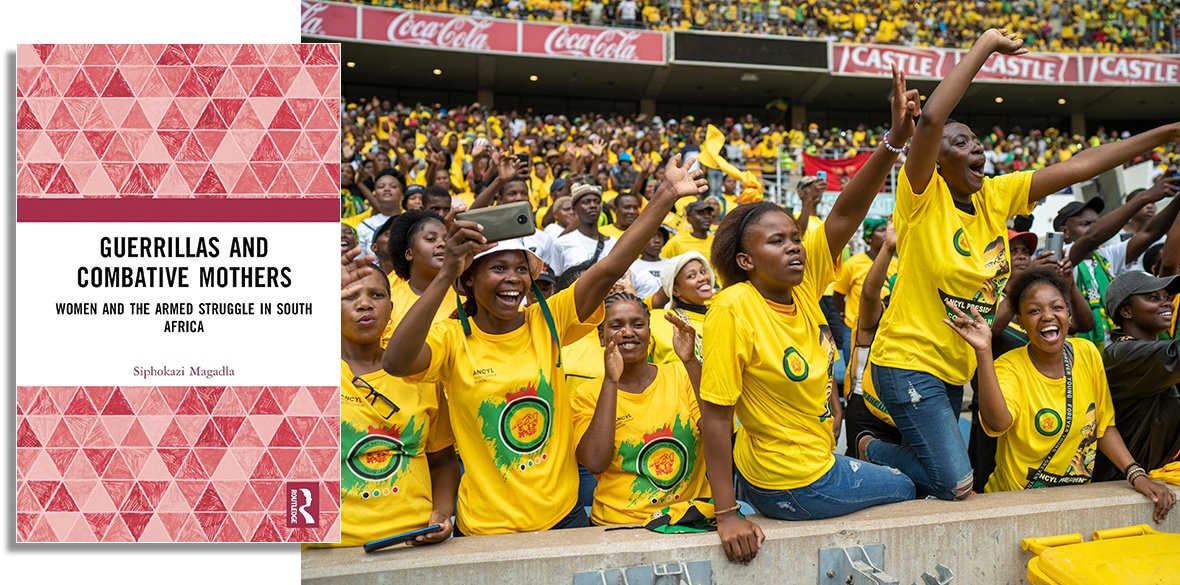This is the last article you can read this month
You can read more article this month
You can read more articles this month
Sorry your limit is up for this month
Reset on:
Please help support the Morning Star by subscribing here
Guerillas and Combative Mothers
By Siphokazi Magadla
University of KwaZulu-Natal Press, £135
THREE decades on, there is still so much to explore about the histories of anti-apartheid struggles in South Africa. The passage of time has potential benefits here, as this study of women in the armed struggle demonstrates, enabling sensitive issues to be addressed more openly as a result.
There are also gender biases to be redressed, given that veterans’ memoirs have been disproportionately written by men.
This study is a timely contribution then, focusing on black women’s experiences as guerillas trained in camps in the front-line states as well as focusing on black women’s experiences of resistance inside South Africa itself.
Women joined the struggle for a variety of reasons, depending on their circumstances. Those who left South Africa to join the camps in the front-line states (run by MK, the armed wing of the African National Congress) tended to have been engaged in underground activity already.
Many had been involved in the Black Consciousness Movement as students and young activists, for example. It was with the support of the ANC that they had managed to leave the country, moving on to access military training and political education in the camps.
Once there, women faced so many challenges, including sexist attitudes from their male colleagues. But they did also want their needs as women to be recognised, including their needs to have access to sanitary products and contraception. And they most certainly wanted to be free from sexual harassment and male violence.
Magadla’s study demonstrates the ways in which women’s situations improved over time in these respects, just as conditions in the camps improved more generally. Some women also obtained access to further education and training elsewhere, including the USSR, East Germany and Cuba, opening up wider opportunities for the future, as a result.
Their courage and determination were matched by the courage and determination of the women who joined resistance struggles within South Africa itself. Some became involved in the rural areas (where the Pan African Congress had support).
But most of the focus has been on the women who became involved in the townships’ uprisings of the 1980s. They faced their own challenges from the brutality of the apartheid regime, as well as from the violence of internal conflicts, leading to 12,000 deaths in KwaZulu-Natal between 1988 and 1996.
Once the armed struggle was suspended with the release of Nelson Mandela, those who had engaged in the armed struggle were faced with two choices. They could opt for demobilisation (with some, if limited, support to enable them to make the transition into civilian life). Or they could opt to become integrated into the newly formed South African National Defence Force (SANDF).
Both options were especially problematic for women. Many felt that the support that was being offered for reintegration was inadequate — and this wasn’t available for those who had been involved in paramilitary formations in the townships anyway.
There were also criticisms about the ways in which the SANDF was formed, with complaints of racist attitudes from former SADF officers, along with complaints about the ways in which the ranking system discriminated against those with less formal qualifications. Some former combatants, especially women, decided to opt for demobilisation because they were so unhappy with these rankings.
On the other hand, a number of women did succeed in obtaining high rankings, going on to make exceptional contributions to gender transformation in the SANDF for the future.
Some have gone on to lead very successful lives, whether in the SANDF or in civilian life. But others have struggled with poverty and inequality, just as others have struggled to re-establish relationships with their families, after so many years of absence.
As their stories demonstrate, too many women experienced marginalisation and sexual violence; but they were certainly not passive victims. On the contrary, these women emerge as active agents of change, challenging sexism at the time and continuing to fight for equalities subsequently in post-apartheid South Africa.
So the struggle for equality and justice continues, raising questions for the future as South Africa faces the prospect of the forthcoming general election.










